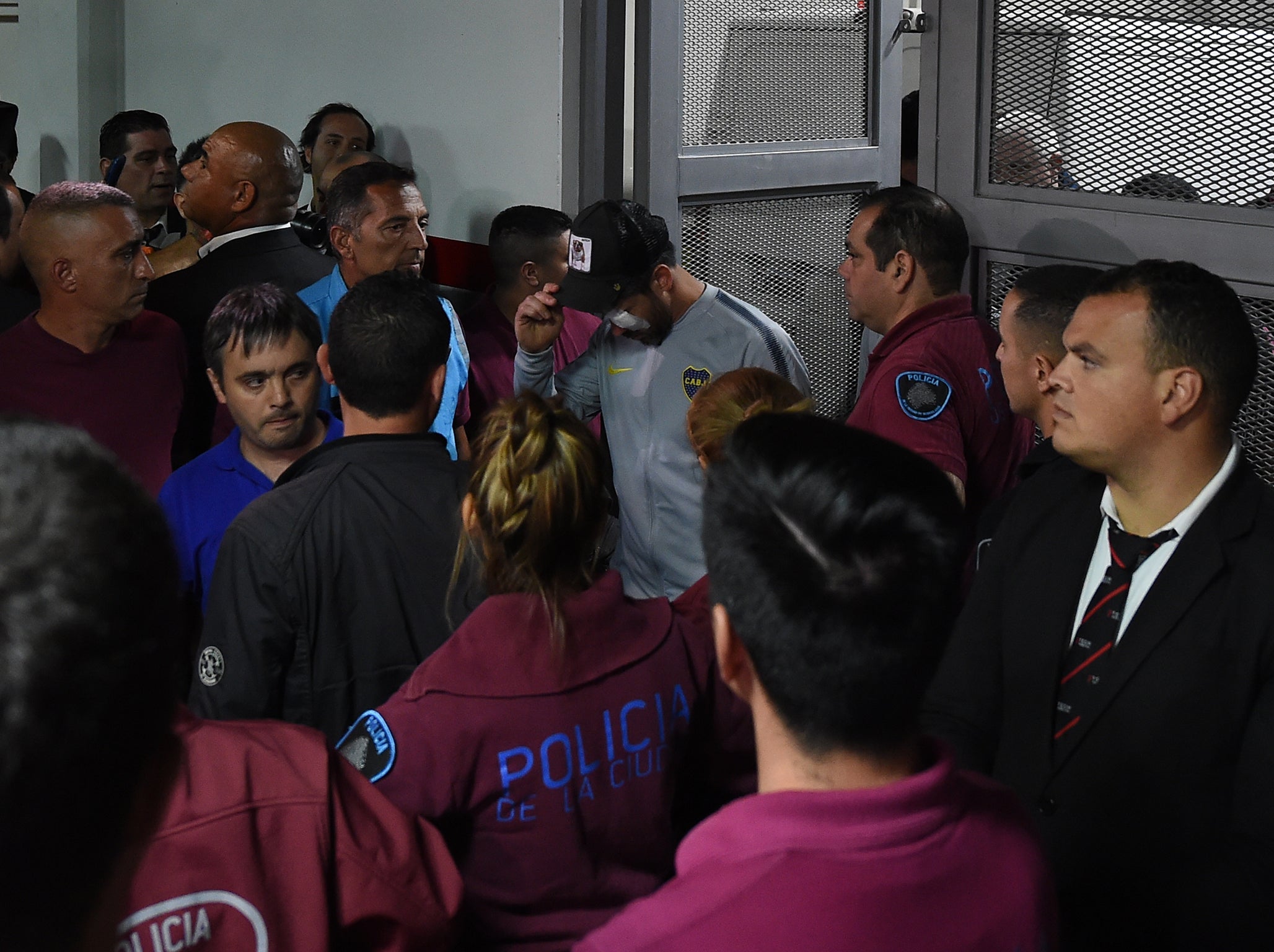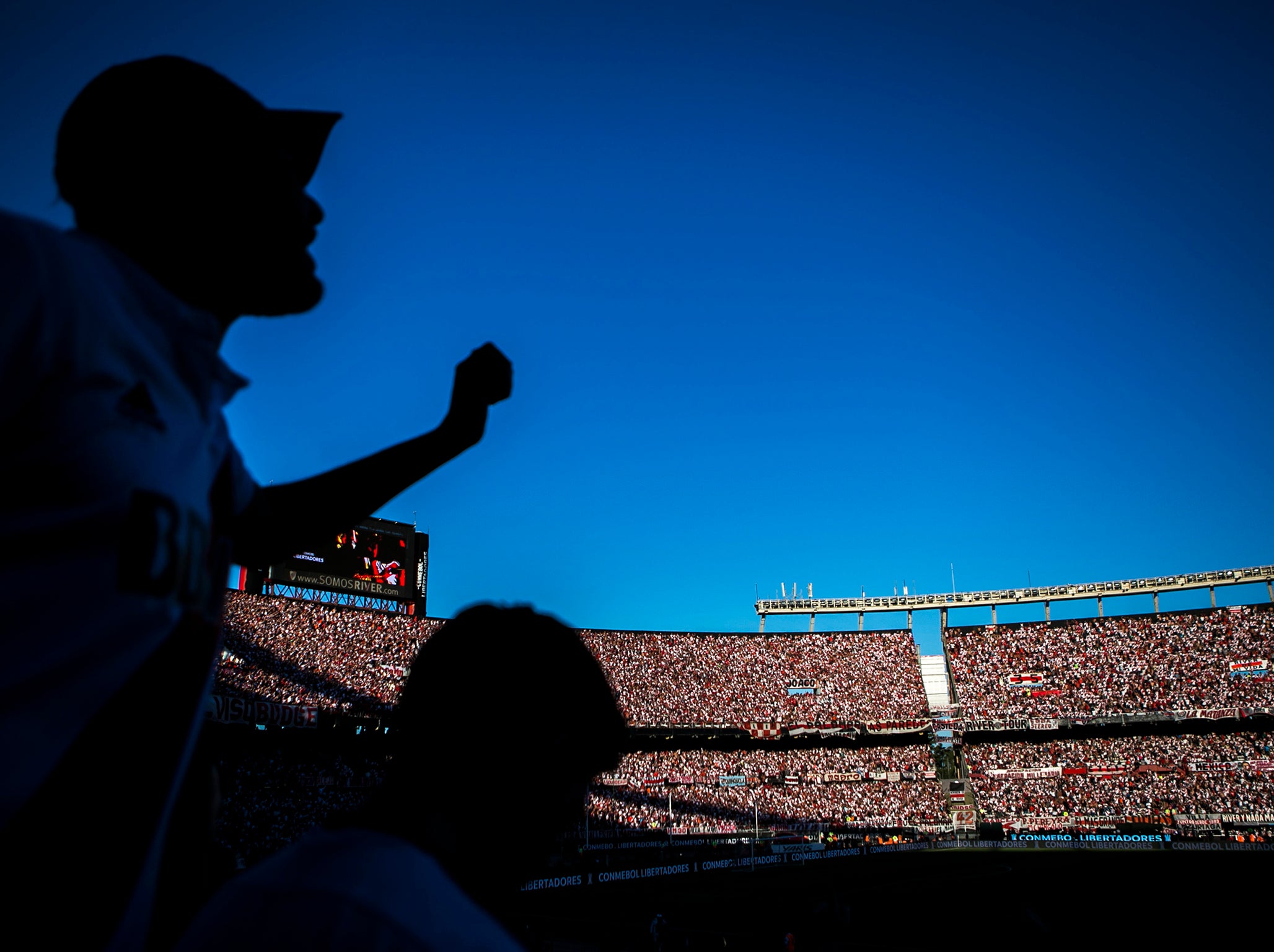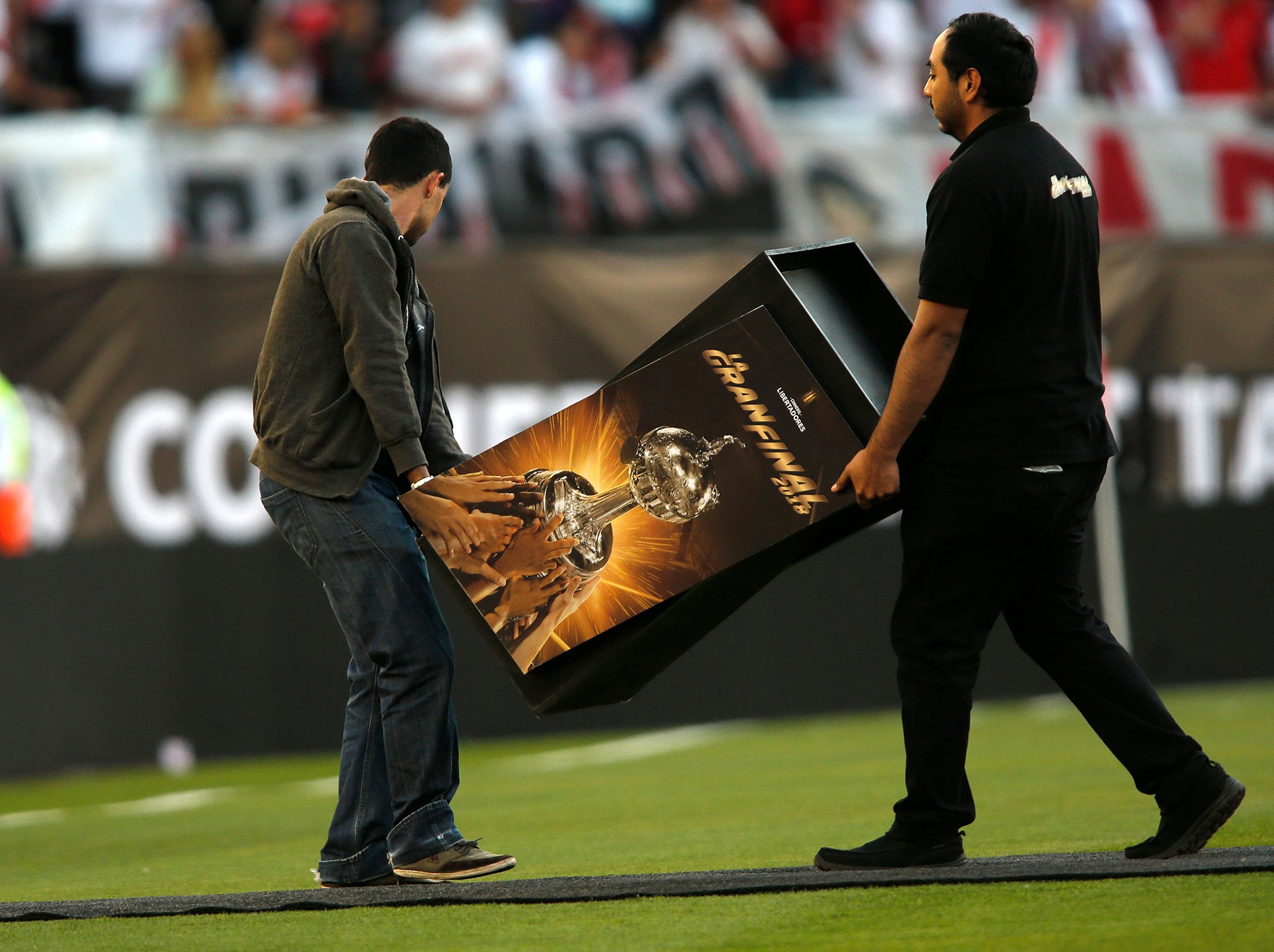Tear gas and tension: The shameful inside story of the Copa Libertadores final that never was
The South American federation at least finally showed some consistency of logic in postponing this match, but that should not spare severe criticism of this utter farce and embarrassment of an occasion
It was the derby built up as “the final to end all finals” and yet, shamefully, it did not even start – at least not on the Saturday it was scheduled.
After another long and tense wait on the evening itself, the 2018 Copa Libertadores final second leg was finally postponed until the following Sunday after Boca Juniors’ bus was attacked en route to River Plate’s Monumental stadium, subjecting the visiting squad to tear gas and forcing captain Pablo Perez to hospital with an eye injury.
But the story behind that could yet be as gripping as the game itself.
A game already heralded as the ultimate Superclasico still had so many levels to go, the ferocious emotion perhaps inevitably spilling over, ensuring that a fixture already taken to its peak in terms of the stage it was to be played on was then taken to a peak in terms of everything happening around it: political intrigue, human drama and outright violence.
The main questions will revolve around exactly what pressure was put on Boca to play the match in the four hours between their bus getting attacked and the match finally - justifiably and logically - getting postponed. An hour before that eventual confirmation, Carlos Tevez and Fernando Gago went on Fox Sports Argentina to outright state “the presidents of Conmebol and Fifa are obliging us to play.”
The more searching questions will revolve around the hugely controversial questions that led to this. Not to mention the argument that River probably wouldn’t even have been in the final had Conmebol followed their own precedent on three transgressions that took place around the semi-final with Gremio, when suspended manager Marcelo Gallardo somehow getting into the dressing room to give a team talk.
The South American federation at least finally showed some consistency of logic in postponing this match, but that should not spare severe criticism of this utter farce and embarrassment of an occasion.
Its great spectacle only saw everyone make a spectacle of themselves.
This was an afternoon of so many striking images. There was the smashed Boca bus, the police firing tear gas, violence outside the stadium and then players of such renown as Tevez visibly wretching as they walked towards the dressing room.
That was all the result of the attack on the bus that took place shortly after 3pm, and first called into question the very logistics around travelling to this final, let alone just staging it. Why did the Boca bus go down Monroe Street, an area where it was known there would be so many River fans?
The bus made it to the Monumental, but one of the players did not stay there. Pablo Perez had to go to hospital, with an injury to his eye. There were also reports that Gonzalo Lamardo joined him. By that point in the away dressing room, many of the Boca players and officials were complaining they were not fit to play.

This was when the long wait really started, and everything got so complicated, not least to the amount of voices around.
It very quickly became apparent that the main authorities - Conmebol, Fifa, the broadcasters, and even the office of president Mauricio Macri - wanted the game to go ahead. On top of all of the issues like the embarrassment of the game getting delayed and the logistics, there was the fact it was already scheduled for this Saturday - rather than Wednesday 29 November - because the G20 summit is taking place in Argentina on Thursday.
The authorities had a quandary themselves. Did they do what was sensible and postpone the game, but face the logistical nightmare of 70,000 dissatisfied River fans having to leave and global embarrassment? Or did they press ahead for short-term gain, and face a long-term fall-out from what would have been justifiable Boca complaints.
This was the tension inside the walls of the stadium.

Out in the stands and on the pitch, there was at that stage a strange calm, with rock songs like ‘Bad Moon Rising’ being played at a lower volume as if to consciously soothe fans who were by now getting word that the match might be postponed.
Then, just at 4.45pm, there was the first of four statements confirming the game would be put back. This one was very carefully worded, indicating the match would take place “not before 6pm”.
It was just after 5pm that it was confirmed the game would be going ahead, only for Boca official Marcelo London to publicly emphasise how difficult this was for his team.
With so many intense talks going on, Osvaldo Pangrazio - the president of Conmebol’s medical commission - was brought in to assess whether there was any medical reason the match could not take place. All manner of information then swirled around, until an official letter confirmed that Pangrazio stated there was no such reason.

“From a medical point of view, there exists no cause for the suspension of the encounter,” it read.
This was when Boca began to properly get out information of their own, as a picture was released of Perez’s face with a bandaged eye.
“We’d come to play a match and we found a completely different situation,” London said. “It’s shameful.”
But still the pressure was there. Still the talk was all the powers wanted this seismic fixture played that night.
It was then that Tevez and Gago let that be known, as they appeared on Fox Sport Argentina.
“Well, first of all, just to let our families know we’re fine,” Tevez said, the very words only adding to the drama of it all, and reflecting the seriousness of the situation. “There are only three or four players who have injuries, but first of all to our families, we can’t communicate with them from the dressing room, that makes it even more difficult with all of this, to talk to our families?”
Tevez was then asked whether Boca were in a condition to play.
“No, no… it’s a situation where they’re obliging us to want to play. I don’t see it, Pablo with something in his eye, with our teammate as well, they’re obliging us to want to play, so we’re waiting?
“There are many players who were coughing, feeling like they’d vomit. My throat hurt me a lot, and in the last hour I’ve had a headache.”
Remarkably, Perez was at that moment coming back to the Monumental.
“It’s difficult to concentrate,” Tevez said, as the entire world focused on what was happening in the hidden rooms of the stadium, away from the cameras.
“If we have to play, we’’ll play, but these aren’t the conditions to play,” Gago added. “The presidents of Conmebol and Fifa want us to play.”
Gallardo was supposedly willing to support Boca in whatever decision they took, but Tevez wasn’t quite so conciliatory. He complained that “not a single player from River” went to check on their fellow professionals.
The vibe at that point was that the game would go ahead, under the force of so much major political influence, but with Boca effectively protesting about.
The potential for a very ugly aftermath was high, to go with what seemed set for an ugly game.
It was just as well there were no Boca fans in the stadium, specifically because of the potential for all of this, and the reports of rubber bullets being fired at River supporters outside.
The music started to ratchet up then, though, as ‘Shook Me All Night Long’ was played so much louder and the red-and-white bunting theatrically came down.
The refs were warming up, everything was heating.
There were then two final twists, only adding to the bizarre theatre of the day.
It was confirmed that Perez would be starting - despite having just come back from hospital - only for the match to immediately be suspended.
The day finished as it started, with utter chaos.
And yet there was Conmebol president Angelo Dominguez still - somehow - presenting a perception of decorum.
“There was a gentleman’s agreement between the presidents of the two clubs,” Dominguez said. “One did not want to play, and the other did not want to win in these circumstances.”
But it seems the controversy from the “final to end all finals” is really only starting.
Join our commenting forum
Join thought-provoking conversations, follow other Independent readers and see their replies
Comments
Bookmark popover
Removed from bookmarks